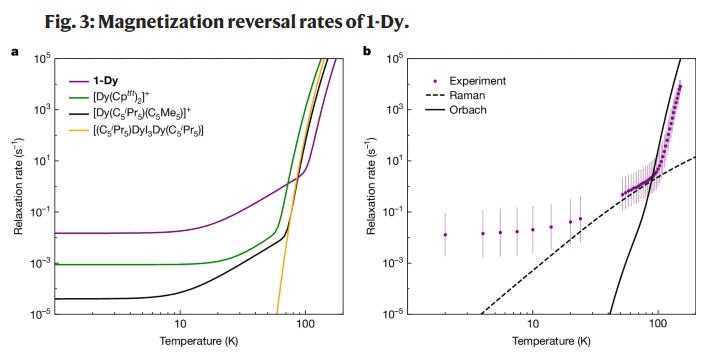Breakthrough Molecule Magnet Tech Opens Door To 100X HDD Storage Uplift
For years, the dream of "single-molecule magnets" (SMMs) has been just that—a dream. The idea is to store a single bit of data on a single molecule, allowing for an incredible density of information. The problem? These molecules would only hold their magnetic state (a '1' or a '0') at absurdly cold temperatures, often colder than deep space, making them completely impractical. This is the barrier that researchers at the University of Manchester and the Australian National University have just shattered.
By engineering a new molecule using the rare-earth element dysprosium, the team has created an SMM that maintains its magnetic memory up to a record-breaking 100 Kelvin (-173 °C). While that's admittedly still a long way from room temperature, it's a monumental improvement and a critical milestone. It pushes molecular storage from the realm of pure theory toward something that could one day be engineered into a real-world product.

Top image: Jamie Kidston/ANU Above: This new research gets closer than ever to room temperature.
So what does this actually mean for you? Well, the potential is staggering. The research suggests this technology could enable storage densities of more than three terabytes per square centimeter. To put that in perspective, a single platter of a 3.5" hard disk drive could store well over 1 petabyte with that kind of density. While there are still challenges to overcome and your next PC won't have a petabyte-scale hard drive, this breakthrough is the essential first step on a long road toward that potential future.
This is the kind of fundamental science that drives the entire tech industry forward. It's a proof-of-concept that will fuel years of engineering and development, with the ultimate goal of making data storage cheaper, smaller, and vastly more powerful than we can imagine today. For more of the nitty-gritty scientific details, you can check out the full study published in the journal Nature.


